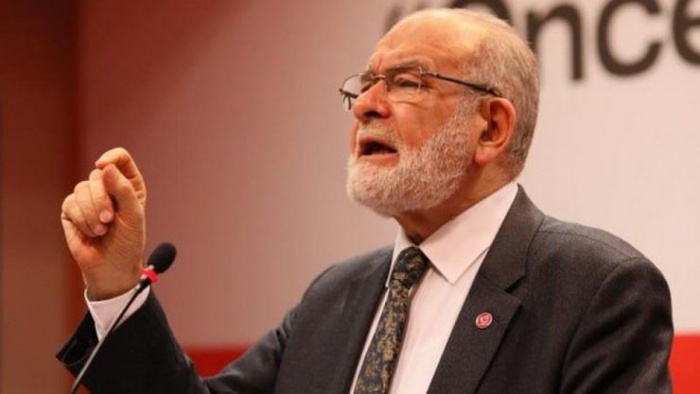The leader of one of six Turkish opposition parties in the “Table of Six” bloc has said they would act as if Turkey had reverted to a parliamentary system of governance in the event they manage to unseat Turkish President Recep Tayyip Erdoğan in the 2023 elections, the BBC Turkish news website reported on Thursday.
Through a referendum in April 2017, Turkey switched from a parliamentary system of governance to an executive presidential system that granted President Erdoğan and his ruling Justice and Development Party (AKP) sweeping powers and was criticized for removing constitutional checks and balances, thus leading to a further weakening of Turkish democracy. Critics call the system “one-man rule.”
The Table of Six, which refers to the leaders of the main opposition Republican People’s Party (CHP), the İYİ (Good) Party, the Felicity Party (SP), the Future Party (GP), the Democrat Party (DP) and the Democracy and Progress Party (DEVA), signed a declaration in February confirming their resolve to introduce a “strengthened parliamentary system” should they unseat Erdoğan in the 2023 elections. Earlier this week the bloc also announced its proposal for constitutional amendments to switch back to the parliamentary system.
SP leader Temel Karamollaoğlu on Thursday answered reporters’ questions on the Table of Six roadmap and the agenda of their next meeting, BBC said.
When asked how the joint management structure of the bloc would work in the event they manage to replace Erdoğan and his government in the elections slated for June of next year, Karamollaoğlu said they would proceed as if Turkey had already switched back to the parliamentary system.
He explained that they would make crucial decisions through consultation and added: “It’s not possible to change the system without changing the constitution. … Therefore, [for a while], the president will make decisions in consultation with all [six] political party leaders.”
Karamollaoğlu further said they would have the president select his ministers according to information he receives from the six party leaders and that those ministers, too, would be making decisions through a consultative mechanism.
When asked whether the six opposition party leaders would serve as vice presidents or cabinet members, the SP leader said that would be clarified at their next meeting, but that they wouldn’t want to be vice presidents since it would mean losing their parliamentary status.
“We are determined about this. We will rule [the country] together. We will rule like a coalition [government]. … Before the presidential election, [our] presidential candidate [will say], ‘From now on, I will rule Turkey in consultation with the leaders of [six] political parties until this change is achieved.’ He’ll make that commitment, that’s all,” Karamollaoğlu said, referring to the re-establishment of the parliamentary system.
The SP leader said they couldn’t predict the timeline for switching Turkey back to the parliamentary system at the present time.
“If we secure [the backing of] 400 lawmakers, we will be able to change the constitution immediately without a referendum. If we get between 360 and 400 votes, there is an obligation to take it to a referendum. If it’s less than 360, we’ll manage like this for a period of time, maybe five years. Together we will rule Turkey as if there was a coalition government, without a constitutional amendment,” he added.
Karamollaoğlu also said that the pro-Kurdish Peoples’ Democratic Party (HDP), the second-largest opposition party in parliament, would play a key role in the upcoming elections.
“I don’t know what they’ll decide [to do]. But it is very important that this election ends in the first round. Hopefully, the necessary steps will be taken and the necessary environment will be created for it,” he said regarding whether the HDP fields its own presidential candidate for the 2023 elections or backs the one nominated by the Table of Six.
According to a report on the Gazete Durum news website last month, the HDP will put forward Kurdish politician Ahmet Türk, 80, as its presidential candidate if the Table of Six does not field CHP leader Kemal Kılıçdaroğlu but rather the party’s Ankara Mayor Mansur Yavaş, whose name is among the potential presidential candidates.
Yavaş, a former politician from the far-right Nationalist Movement Party (MHP), an ally of the ruling AKP, is disliked by most Kurds due to his nationalist background and anti-Kurdish discourse.

